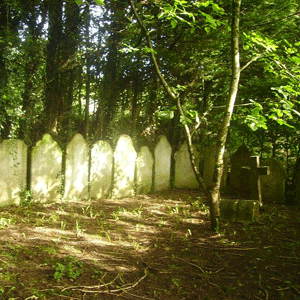
One of the most difficult things for atheists and even Christians to imagine is what is supposed to actually happen in Heaven. It isn't easy to picture how people are going to fill the vast expanses of time, stretching endlessly over the horizon. In particular, people wonder, will anyone 'work' up there?
It's a vexed question, and an irritating one for Christians. Realising they can't simply avoid it, some have set about addressing it, often playfully, with their congregations. The question reared its head again recently after American megachurch pastor Robert Jeffress said on a TV show that people will enjoy working in Heaven because the things that drain the joy from work – pesky factors like “government regulation” – will have been abolished. “Remember, God created us to be workers,” he said.
As Miles Klee writes, if you look at the meat of what Jeffress was saying, as opposed to the amusing "government regulations" headline, you'll find a line of thought that dominates mainstream Christianity, especially in the US: we were made to be workers, so will we continue to labour in Heaven once we are dead? Of course.
But, unsurprisingly, the heavenly details here are both vague and hotly disputed. A legion of questions arise: will we be paid? Will some jobs – heart surgeon, for example – no longer exist? If it's a job, can we be fired? What if we didn't like the job that we did on Earth? The answers vary according to who you ask. In the US, there are plenty of pastors like Jeffress who want to reinforce the capitalist status quo that we are defined by the thing that makes us money – so we will continue to do that very thing, presumably for eternity.
But of course, it will not be the drudgery that it is on Earth. They are, after all, selling Heaven as a product, and everything needs to look perfect up there. The question is, if it no longer looks like work as we understand it, can we call it work at all?
Darrell Cosden is the author of a book called The Heavenly Good of Earthly Work. “We were created to be workers,” he tells me from his home in Fiji, where he is a lecturer in theology and ethics. “It's not incidental to us, it's essential to us.” Because we won't be alienated from our work as a result of having to sell it to the highest bidder, we won't "work" in the Marxian sense, he says. To him, the fact that we will be physically made new is important. It will not simply be our souls that exist in Heaven, it will be our bodies – and our bodies were designed to work. He believes that for eternity we will “be ourselves in the freedom of a restored relationship between us and creation”.
Cosden believes that work in the new creation will not be the laborious vision painted in Genesis 3, but instead “a notion of playful imaginative exploration, which at the heart is what Christians do mean when they say they envision a new reality in worship”. He has been asked “a million times” what will happen to doctors in Heaven if there is no suffering. Given that a doctor is fundamentally a scientist, he believes they will be free to explore the depth and breadth of God's creation for eternity.
The word "free" is important here. When I ask Cosden whether the toilsome nature of work being absent means that it cannot be called "work" any more, he says that this is already a philosophical question for play theorists, who tend to say that play is defined by freedom. Given that presumably people in Heaven are acting freely, this would imply that "work" – and indeed everything else – may be more appropriately defined as "play". “Will it be work? Yes,” says Cosden. “Will it be play? Yes.” This point of view is easy to find in contemporary American Christianity. As this piece in the Institute for Faith, Work and Economics puts it, “If there is work, it will not seem like it.” Some might call this having their cake and eating it. In the Church it is a contradiction that many are happy to accept.
One Christian writer who doesn't toe this line, however, is Don C. Warrington, who thinks that the evangelical vision of work in Heaven is “profoundly unbiblical”. He tells me by email, “I think the problem is that people in American culture tend to define themselves by what they do for a living. Once you do that, you can't imagine life on this side or the other without a career. I think that we need to get past that.” In a 2012 blog post he pointed out that the contention that we will work in Heaven is not backed up by Scripture, which details nothing about what kind of "jobs" we'll be doing. “They speak of rewards, crowns, ruling and the like, but none of this suggests work. The whole idea of ruling is that someone else gets to do the work while you take the credit.”
One fascinating insight Warrington has is that people's vision of “the life to come” has changed as life has become easier. In the past, “People wanted Heaven to be what this life wasn’t: long, stable and easy.” Now that life is long, stable and (comparatively) easy, Christians look at Heaven as an extension of things as they are now. “That’s why these days we get questions about whether there will be such things as pets, golf, etc. in Heaven, when what we’ll get will far overshadow the joys of any or all of these things or anything else.” Indeed, straying slightly from work, Warrington wrote recently that there will be no orgasms in Heaven but that “what we will experience in the presence of God will be far more intense and sustained than any orgasm we experience here”.
Orgasms aside, it is difficult to argue with Warrington when he says, “Evidently the person who first hatched the idea that we would work in Heaven really loved their job.” And, as long as American churches continue to receive a huge amount of money from their parishioners, it is important to them that these people love their jobs as well – so that the money doesn't dry up. Even if some of them believe the government takes too much of it.

